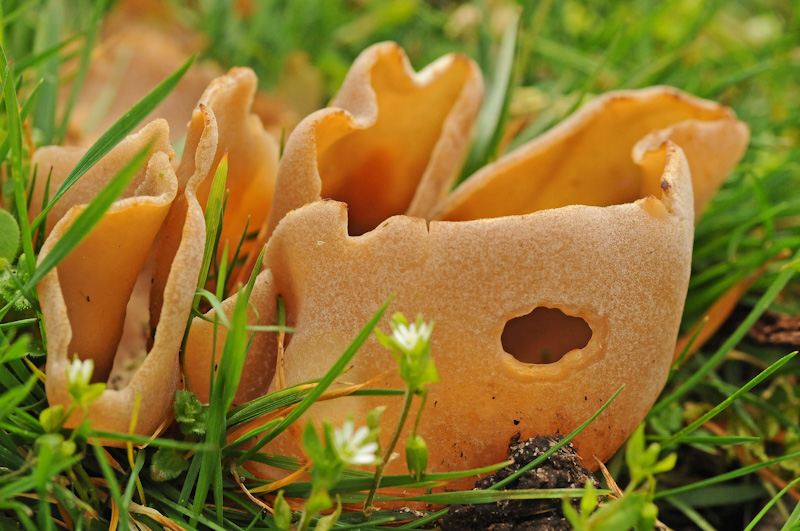
Photo and Commentary ©2024 by Robert Howson
Tuesday, January 2, 2024
If you’ve ever entered into deep water, water that is way over your head because you elected to enter into a field where you had little knowledge, then you can empathize with me. Many field guides include a key whereby the individual can supposedly go through the process of making binomial choices, exactly as a computer would, to arrive at a correct identification of the organism under scrutiny. The problem with this method is that in many cases, this means learning an entirely new language. To a person who has a doctorate in fungi, this may not be a big deal, but to a novice like me, it’s an almost overwhelming task. Instead, I find myself paging through a book looking for pictures that in some way remotely resemble the specimen under consideration. Even this method is subject to flaws.
When I first encountered this fungus which was new to me, I made a few mental notes so I could check out possibilities in one of my books. This brought me into contact with my first weakness, my memory. My memory informed me it was white, but the book offered no such possibilities. As a result, I returned, took a picture, and with this in hand, returned to my book. And that is how I arrived at the name Peziza vesiculosa. I don’t know if it’s right or not, but it does grow in my area and is present in the season I discovered it. At least I feel reasonably comfortable that the genus is right.
Imagine opening up the Bible for the first time with no previous knowledge of Scripture, its arrangement or content. The challenge could be daunting. Was Saul a king or was he a Jewish hit man? Was that stone that was mentioned Christ, Peter, or regular church members? Under such conditions it’s easy to understand why Ellen White wrote the following sentence: “The strongest argument in favor of the gospel is a loving and lovable Christian.” (The Ministry of Healing p.470) No theological dictionary needed, no interlinears mandated, just the language we each can read and understand, the language of a loving and lovable Christian.
